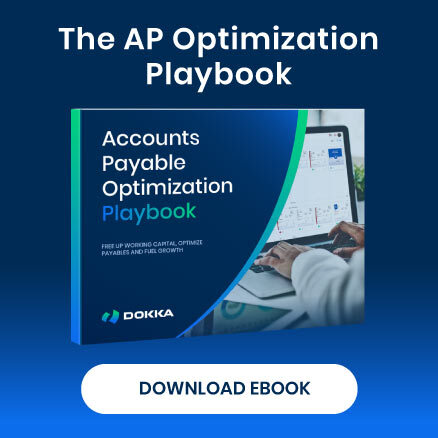As a business owner, making strategic decisions is essential to your success, and one of the most critical hires you will ever make is your Chief Financial Officer. Whether you run a small startup or a large corporation, the CFO plays a pivotal role in shaping your company’s financial stability, growth, and long-term sustainability.
If you’re hiring your first CFO, it’s important to understand that their responsibilities extend beyond number-crunching. While many begin their careers as accountants and work their way up, a CFO serves as the financial architect of your company—overseeing all financial aspects, providing key insights, and making strategic decisions that influence profitability.
However, finding the right CFO can be challenging. Small businesses may struggle to attract top-tier candidates due to limited resources, while large corporations may find it difficult to identify a leader capable of navigating complex hierarchies.
In this comprehensive guide, we will equip you with the knowledge to make an informed decision. We’ll explore how to hire the best CFO for your company, covering essential qualities to look for, the hiring process, and potential pitfalls to avoid.
Let’s get started.
Key Takeaways:
- Understand the role: A CFO is more than just a number-cruncher; they shape your company’s financial strategy and long-term vision.
- Key qualities to look for: Seek candidates with strong financial acumen, strategic thinking, problem-solving skills, and leadership abilities.
- Cultural fit is crucial: Ensure the CFO aligns with your company’s values and can collaborate effectively with the team.
- Structured hiring process: Define the role clearly, tap into your network, conduct thorough interviews, and assess both technical expertise and cultural fit.
- Avoid red flags: Watch out for signs of questionable integrity, lack of strategic vision, poor communication, or an unwillingness to adapt to new technologies.
- Onboarding is essential: A well-organized onboarding process is key to setting your new CFO up for success and ensuring they integrate smoothly into the company.
- Patience is key: Rushing the hiring process can lead to costly mistakes—take your time to find the right candidate who will contribute to your company’s growth and success.

What To Look For In Your New CFO?
Before you start searching for candidates, it’s important to understand the CFO’s role and how it fits into your company’s structure. When evaluating potential candidates, consider the following key qualities to find the best fit for your organization:
Financial Expertise & Strategic Thinking
- Strong Financial Acumen: Look for candidates with deep expertise in finance, particularly within your industry. Your CFO should be a financial strategist, capable of analyzing data, forecasting, and making sound financial decisions.
- Strategic Thinking: A great CFO does more than manage numbers—they help shape the company’s overall strategy. Seek candidates who can align financial goals with your business’s long-term vision.
- Problem-Solving Skills: CFOs must be adept at identifying and mitigating financial risks, ensuring your company’s financial health remains strong.
Communication & Collaboration
- Effective Communication: CFOs must be able to convey complex financial information clearly to stakeholders, whether presenting reports to the board or explaining financial strategies to employees.
- Collaborative Skills: The ability to work seamlessly across departments is crucial. Your CFO should be a team player who fosters strong relationships within the organization.
Leadership & Adaptability
- Adaptability: Your CFO should be able to pivot and adjust financial strategies in response to market shifts or unforeseen challenges.
- Leadership Abilities: CFOs often lead large teams, so they should be capable of inspiring and managing staff effectively.
Track Record & Integrity
- Proven Track Record: Look for candidates with a history of success in previous roles. Their past achievements can be a strong indicator of their potential contributions to your company.
- Ethical Integrity: Trust is critical in financial leadership. Ensure your CFO has impeccable ethical standards to safeguard your company’s reputation.
Cultural Fit
Hiring a CFO isn’t just about qualifications and experience—it’s also about finding someone who aligns with your company’s values, vision, and culture. The right CFO should seamlessly integrate into your organization and contribute to its long-term success.
How To Manage the Hiring Process?
Hiring the right CFO requires time, effort, and patience. While you may need to fill the position urgently, rushing the process can lead to costly mistakes. Selecting the right candidate involves evaluating a combination of skills, experience, and overall fit. Taking the time to thoroughly assess each candidate ensures you find a leader who will drive your company’s financial success.
Also, a structured approach is essential. Here are the steps to help you manage the process effectively:
Step 1) Define the Role
The first step in hiring a CFO is to determine your company’s specific needs. Every organization is unique, and the role of a CFO can vary depending on its size, industry, and stage of growth. Do you need a CFO to assist with budgeting and cost control, or someone experienced in mergers and acquisitions?
A well-defined job description should go beyond a generic list of duties. It should reflect your organization’s specific needs and goals, clearly outlining responsibilities, expectations, and strategic objectives. Defining expectations upfront helps attract candidates with the right skills and experience.
Step 2) Utilize Your Network
Your professional connections, industry contacts, and trusted advisors can be invaluable in identifying potential candidates. Reach out to colleagues, business partners, and professionals within your industry to inquire about individuals who may be a strong fit for the CFO role.
Personal referrals often lead to outstanding candidates who may not be actively job-seeking but align perfectly with your company’s needs and culture.
Additionally, online networking platforms like LinkedIn provide excellent opportunities to connect with prospective candidates and showcase your company’s culture and values. Attending industry events and conferences can also expand your reach, as these gatherings attract experienced professionals who understand your industry’s nuances.
If you prefer a structured approach, consider working with a recruitment agency specializing in executive-level positions or fractional CFOs. These agencies have extensive networks and can efficiently identify candidates who meet your specific requirements, streamlining the hiring process.

Step 3) Engage a Search Firm
For larger companies or those with specialized needs, enlisting an executive search firm can be a good way to go. These firms have access to a vast talent pool and are skilled at identifying and vetting top-tier CFO candidates, saving you time and resources.
Executive search firms also handle technical aspects of recruitment, such as salary negotiations and background checks. Their deep industry expertise allows them to provide valuable insights and guidance throughout the hiring process, ensuring you attract the best talent.
Step 4) Screen Resumes
During the initial screening process, focus on identifying candidates whose qualifications and experience align with your job description and specific needs.
Pay close attention to:
- The scope of their previous roles and responsibilities
- Notable achievements and measurable impact
- Relevant industry experience and professional development
A thorough screening process helps streamline candidate selection, allowing you to focus on those who best match your company’s requirements.
Step 5) Conduct Interviews
Once you’ve identified promising candidates, the interview stage allows for a deeper evaluation of their technical expertise, leadership capabilities, and cultural fit.
Consider conducting panel interviews with multiple stakeholders to gain diverse insights and ensure alignment with your organization’s goals. This approach provides a well-rounded perspective and helps identify the best candidate for your company.
Step 6) Perform Reference Checks
Reference checks are an important part of the hiring process, allowing you to verify a candidate’s qualifications, past performance, and work ethic. Speaking with previous employers or colleagues can provide valuable insights that go beyond what’s listed on a resume.
Effective reference checks minimize potential hiring risks and ensure you make an informed decision.
Step 7) Assess Financial Acumen
For smaller companies, assessing a candidate’s financial expertise through case studies or scenario-based exercises can be beneficial.
Provide real-world financial challenges relevant to your industry and evaluate their problem-solving abilities and strategic thinking. This method helps gauge how well they can handle the financial complexities of the role.

Step 8) Look Beyond Technical Skills
While financial expertise is critical, a successful CFO must also possess strong leadership, communication, and strategic decision-making skills.
Look for candidates with:
- A proven track record of success
- The ability to adapt to market changes
- Strong ethical integrity and trustworthiness
A CFO’s leadership style and ability to collaborate with other departments are just as important as their technical capabilities.
Step 9) Assess Cultural Fit
A CFO should align with your company’s values and culture, as this ensures long-term success and effective teamwork.
Engage key team members in the interview process to assess how well the candidate fits within your organization. Ask about their leadership style and how they would handle potential challenges within the company.
Step 10) Offer Negotiation
CFOs are in high demand, so offering a competitive compensation package is essential to attract top talent.
Beyond salary, consider including:
- Bonuses and performance-based incentives
- Equity options or profit-sharing
- Work-life balance and career growth opportunities
Transparency in negotiations ensures both parties are satisfied with the final agreement, securing your chosen candidate.
Step 11) Onboarding
Once your CFO accepts the offer, a well-structured onboarding process is crucial for a smooth transition.
Provide them with:
- A comprehensive introduction to the company’s culture, policies, and strategic goals
- Access to key financial reports and company history
- Meetings with key stakeholders to establish relationships and expectations
A strong onboarding process is key to setting your new CFO up for success, and this essential CFO checklist for their first 90 days on the job can help make it happen.

Red Flags to Watch Out For When Hiring a CFO
While the above steps can help you identify and hire the best CFO for your company, it’s also important to be aware of potential red flags that could indicate a candidate is not the right fit.
Some warning signs to look out for during the hiring process:
Integrity & Ethical Concerns
- Lack of transparency – Evasive about past experiences or financial decisions, indicating potential ethical concerns.
- Questionable ethical behavior – Past legal issues, financial irregularities, or breaches of trust should be thoroughly investigated.
- Negative references – Consistently poor feedback from previous employers regarding performance, attitude, or ethics.
Strategic & Leadership Deficiencies
- Overemphasis on short-term gains – Prioritizing immediate financial wins over long-term sustainability.
- Lack of a clear strategy – Inability to articulate a financial vision for the company.
- Micromanagement tendencies – Hesitant to delegate, leading to inefficiencies and poor team growth.
- Poor cultural fit – Misalignment with company values, potentially causing workplace disruptions.
Competency & Industry Knowledge Gaps
- Inadequate risk assessment – Downplaying financial risks or lacking a clear risk management strategy.
- Inconsistent track record – Frequent job changes or short tenures, signaling potential instability.
- Inadequate industry knowledge – Lack of familiarity with market dynamics, making it harder to navigate industry-specific challenges.
- Lack of regulatory knowledge – Poor understanding of compliance and financial regulations, which could pose legal risks.
Communication & Adaptability Issues
- Poor communication skills – Inability to clearly convey financial concepts to stakeholders.
- Overreliance on tradition – Unwillingness to embrace new financial technologies or innovative strategies.
- Inability to handle pressure – Struggles in high-stress situations, affecting financial decision-making.
- Inadequate technology skills – In today’s digital age, a CFO plays a big role in digital transformation, and should be comfortable with financial technology and data analytics. A candidate with limited tech skills may lag behind in optimizing financial processes and leveraging data-driven insights.

Final Thoughts
Hiring a CFO is a pivotal decision that can significantly influence the financial health and long-term success of your company. By following these steps and being mindful of potential red flags, you can identify a candidate who not only brings strong financial expertise but also aligns with your company’s values and culture.
It’s important to involve key team members in the hiring process, as their insights and feedback are crucial in making an informed choice. Once you’ve selected your new CFO, ensure a well-structured onboarding process to set them up for long-term success. A competent and experienced CFO can be an invaluable asset in driving your company’s growth and profitability.




